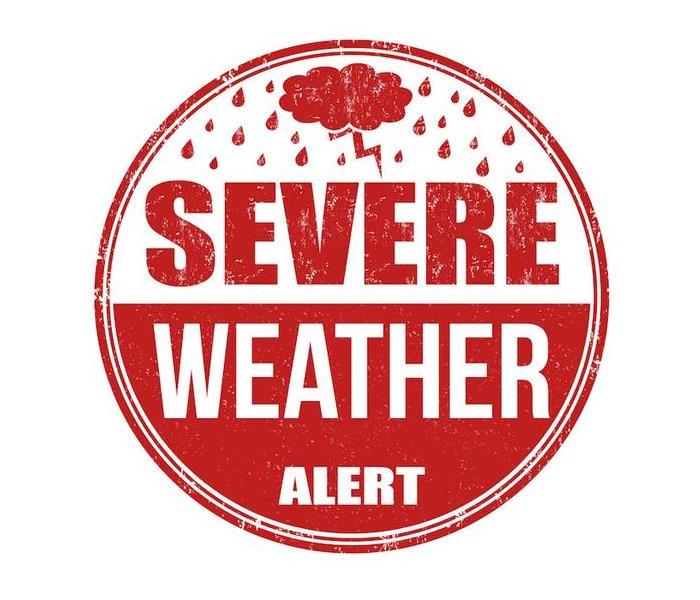What Storm Warnings Can Mean For You And Your Home
7/12/2022 (Permalink)
There are many kinds of weather alerts, around 42 types to be exact. These are categorized into seven weather-related groups. When a storm is approaching, this might be a lot to take in!
Understanding what these warnings could mean for your safety can help you know what precautions to take and how soon you should take them. They can also help you secure your home if a storm is imminent.
Knowing about all the different types of weather emergencies is important, but being aware of what weather may hit Lowell is even more crucial.
So, how do weather warnings get sent out to begin with? How can these forecasts be so accurate when they are merely predictions? There are many variables that play into why and when these alerts are issued.
The National Weather Service works to forecast weather conditions as accurately as possible as well as issue warnings as conditions develop. To make these warnings more location-specific, there are six regional offices all around the country that send out these alerts. Lowell’s alerts are sent from the Eastern Regions headquarters in Bohemia, New York, along with local offices nearby.
Forecasters and other workers at the NWS use various types of information to predict the weather, including satellites, weather balloons, seismic activity meters and even solar activity.
While this kind of information varies depending on the severity of a weather event, meteorologists’ main goal is to deliver as accurate a forecast as possible.
There’s a good chance you’ve received a weather advisory with the words “watch” or “warning” in it. This wording is used in almost all weather warnings, including those for thunderstorms, winter storms and tornadoes.
A watch indicates a storm is being monitored and you should begin preparing for the worst-case scenario. Watches are typically sent to a wider area, while a warning is more precise and may only be issued to a county or city. A warning indicates that severe weather is on the way, and you should prepare yourself and your home immediately.
Being aware of what type of weather may impact our community can help you understand the warnings that may be issued to you during weather events. The Merrimack River, for example, runs through Lowell, and it can overflow and cause floods on occasion. When the conditions are right, flood warnings will be issued.
Knowing what a local weather alert means for your home can help you take steps to prepare for disasters, and there are many simple methods to do so around your property.
Clearing your gutters of debris and fastening any outdoor valuables are two ways you can prepare before weather conditions like floods and strong winds wreak havoc. Locate a shelter to take cover with necessary supplies, and in the event of an evacuation, know where you and your family can relocate.
After a storm, contact SERVPRO to repair any damage your home may have suffered. We can be there whenever you need us to restore as much of the damage as possible.
To keep you and your property safe, stay aware of the kinds of weather that may strike your neighborhood. Learn about the many notifications that may be issued for your property so you can best prepare for any weather that comes your way.
Experienced storm damage to your home or property? Contact us today for a quick response!

 24/7 Emergency Service
24/7 Emergency Service
